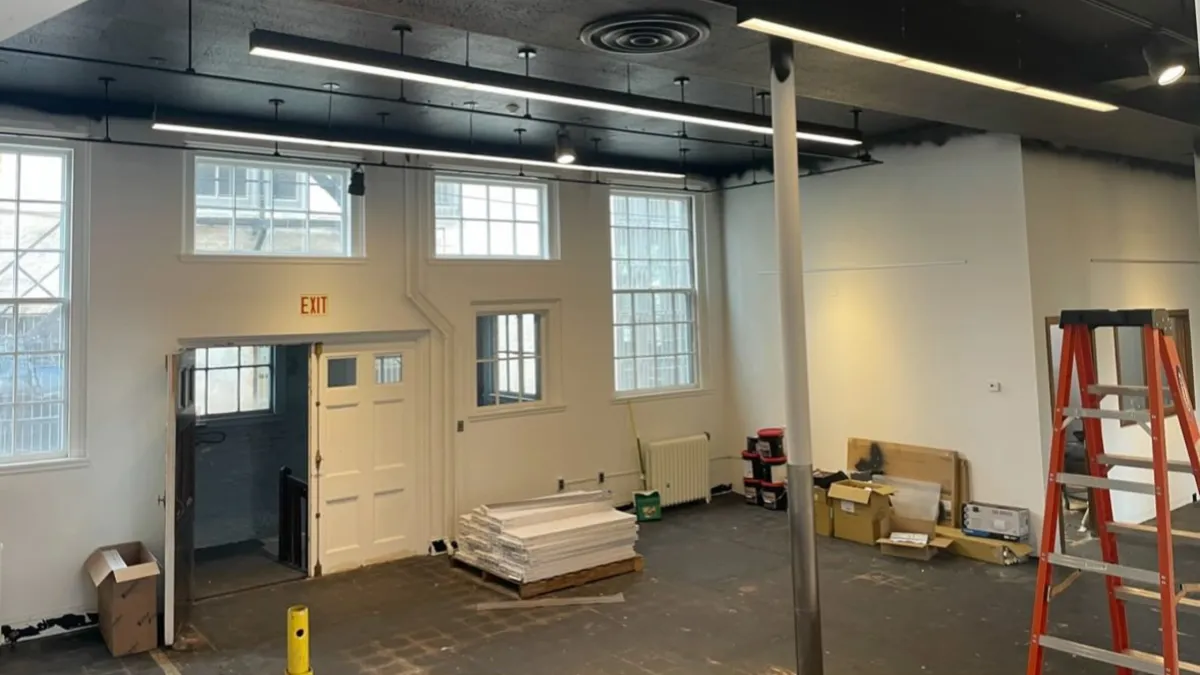Never wait for help. We're available 24/7.
Call Now: 781-782-2382
Never wait for help. We're available 24/7.
Call Now: 781-782-2382

When we walk into a commercial space in Greater Boston — whether it's a medical office in Melrose or a retail plaza in Reading — one of the first things we ask is: How old is your panel? Because in 2025, more than ever, your electrical panel can either power your business or hold it back.
At Castro Electric, we’ve upgraded panels in everything from restaurants to distribution centers. And one thing’s clear: the demand on commercial electrical systems has outgrown what many buildings were originally built to handle.
Here’s what we want every property owner, facility manager, and GC to know about electrical panel upgrades this year.
In the past 18 months alone, we've been called to jobs where:
A medical tenant couldn’t install upgraded imaging equipment due to panel limits
A restaurant in Medford kept tripping breakers after installing a new HVAC system
A small office in Burlington lost three workdays after a panel failure fried their server gear
These aren’t rare issues. They're signs of a system under stress — and they’re becoming more common as more buildings push aging infrastructure beyond capacity.
We're also seeing that older switchgear and panelboards are no longer supported by manufacturers, meaning if something fails, replacements aren't always available — which leads to costly emergency rewiring or temporary power setups.
A true commercial panel upgrade isn’t just swapping out a box.
We start with a load calculation — reviewing your current usage, planned changes, and potential future demands (like EV chargers or solar tie-ins). Then we:
Identify available capacity and voltage needs
Coordinate with the utility for service changes if needed
Pull all permits and handle inspections
Replace outdated equipment (often including the meter or service riser)
Ensure all grounding, bonding, and labeling is code-compliant
It’s not a quick fix — it’s a foundation-level improvement. And when done right, it unlocks everything else.
We also help clients understand the lifecycle of their current equipment — including whether it meets current NEC, NFPA 70E, and ADA accessibility requirements for electrical gear placement.
Massachusetts has been pushing forward on electrification. Local jurisdictions (including Stoneham, Woburn, Cambridge and beyond) are tightening code enforcement, especially for:
Commercial renovations or tenant improvements
Energy efficiency requirements
Life safety and accessibility upgrades
An outdated panel can stall permits, delay occupancy, or increase liability. It also limits your ability to scale — whether that’s adding HVAC capacity, EV charging stations, or backup power systems.
And in some municipalities, if your panel or service is deemed unsafe or non-compliant, it could impact your insurance underwriting or claims processing. We’ve seen policies denied or premiums raised due to non-upgraded systems.
We recommend planning for a panel upgrade if you:
Own a building built before 1990 with no major electrical upgrades
Are adding tenants or planning capital improvements
Have frequent breaker trips or unexplained shutdowns
Are installing high-load equipment (HVAC, refrigeration, commercial kitchen, etc.)
Want to add EV charging or solar in the next 1–3 years
Are preparing for a refinance, sale, or change in occupancy
Aging panels often contain obsolete brands (like Zinsco, Federal Pacific, Pushmatic) that no longer meet today’s safety standards. We routinely inspect and flag these systems — often catching issues long before they lead to outages or fire hazards.
These aren't just risks — they're opportunities to futureproof. We’ve seen property owners use panel upgrades to justify rent increases, meet ESG benchmarks, and improve insurance positioning.
Every project varies, but there are common cost drivers to be aware of:
Amperage needs (200A, 400A, 800A+)
One-line drawing and load study requirements
Utility-side infrastructure (pole, transformer, riser)
Panel location (interior vs. exterior, ceiling height, accessibility)
Shutdown coordination (tenant impact, temporary power setups)
We help you navigate every part of this process, and in many cases, we can phase work to reduce disruption. For larger properties, we often bundle panel upgrades with service equipment replacements, lighting controls, or generator tie-ins to streamline inspections and approvals.
We specialize in commercial electrical panel upgrades across Greater Boston. If you’re operating in any of the following areas, we know the code, the inspectors, and the challenges:
If you're in any of these towns and wondering whether your panel is up to the task, we're happy to schedule an on-site walk-through or provide a load study with recommendations.
If you’re not sure whether your panel is a problem — that’s usually your answer. The best time to assess your system is before something fails.
We’re not here to oversell. We’re here to help you:
Understand your capacity
Plan intelligently for future load
Stay compliant, efficient, and operational
Call Castro Electric at (781) 782-2382
Serving Greater Boston & Surrounding Areas
Request a Commercial Assessment

Website by Up & Social